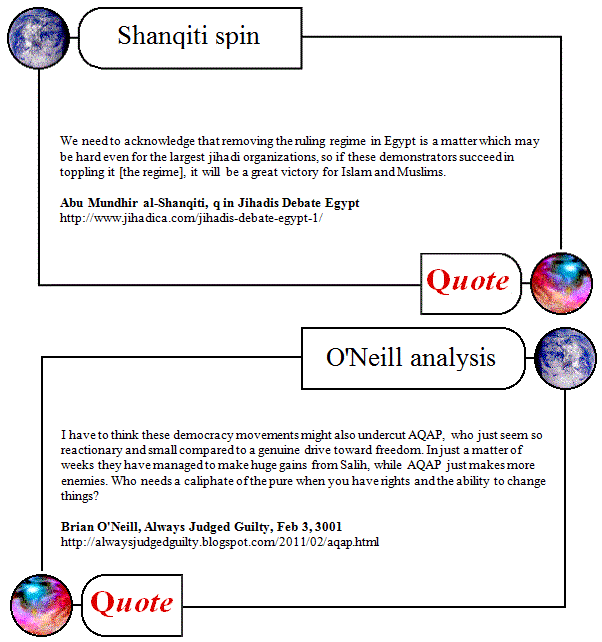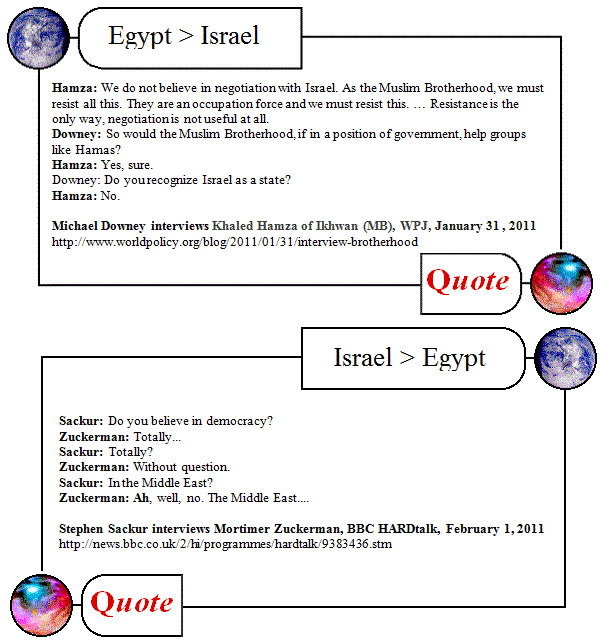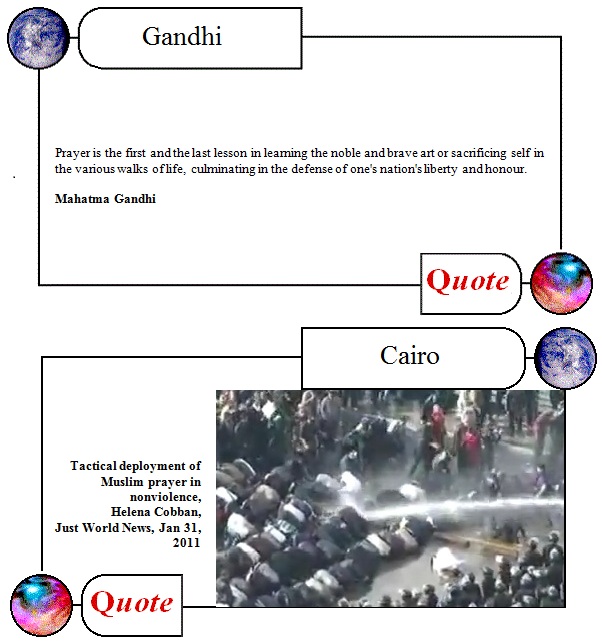Knowing of my interest in matters apocalyptic, you wouldn’t expect me to pass up President Reagan‘s connection with Ezekiel and the Revelation of John of Patmos on an occasion such as this, would you?
Seriously:
I’m not entirely comfortable with the idea of people who believe in prophecy having their fingers on the triggers of nuclear weapons. Ronald Reagan was one such, and didn’t press the trigger — a fact for which I am profoundly grateful. Perhaps it was his “jovial” approach to “doom” that made the difference.
The story is actually quite fascinating. I first ran across mention of it in Stephen O’Leary’s (politically neutral) book, Arguing the Apocalypse, researched it a little more and found the account in Sara Diamond’s (leftwards) book, Spiritual Warfare: The Politics of the Christian Right, and verified the story’s legs by finding it in this account by Joel Rosenberg (right-leaning, Christian, apocalyptic), which I believe can be found in his book The Epicenter but which I’m quoting here from his website FAQ:
In 1971, Reagan—then governor of California—attended a banquet to honor State Senator James Mills. After the main course, he asked Mills if he was familiar with “the fierce Old Testament prophet Ezekiel.” He went on to explain that Russia was the Magog described in Ezekiel’s prophecy and was thus doomed to destruction.
“In the thirty-eighth chapter of Ezekiel it says God will take the children of Israel from among the heathen [where] they’d been scattered and will gather them again in the promised land,” Reagan told Mills. “Ezekiel says that . . . the nation that will lead all the other powers into darkness against Israel will come out of the north. What other powerful nation is to the north of Israel [besides Russia]? None. But it didn’t seem to make sense before the Russian revolution, when Russia was a Christian country. Now it does, now that Russia has become communistic and atheistic, now that Russia has set itself against God. Now it fits the description perfectly.” Reagan conceded that “everything hasn’t fallen into place yet,” but he strongly believed the end of the Soviet empire and the second coming of Christ were increasingly close at hand.
In his 1997 book Dutch: A Memoir of Ronald Reagan, Edmund Morris—the president’s official biographer—revealed that Ezekiel was actually Reagan’s “favorite book of prophecy.” Morris also recounted an intriguing scene he personally witnessed in the Oval Office in which Reagan discussed the Ezekiel option with White House Chief of Staff Howard Baker and National Security Advisor Colin Powell.
“We talk mainly about religion,” read the notes of Morris’s meeting with Reagan on February 9, 1988. “I have been reading a book about his Armageddon complex, and, when I mention the subject, am rewarded by an animated speech, full of jovial doom, that lasts the rest of the half hour. … [White House chief of Staff] Howard Baker and [National Security Advisor] Colin Powell arrive, impatient for their own thirty minutes. ‘We’re having a cozy chat about Armageddon,’ I say. They stand grinning nervously as he continues.”
“When it comes [Ezekiel 3839],” Reagan explained to his senior staff, “the man who comes from the wrong side, into the war, is the man, according to the prophecies, named Gog, from Meshech, which is the ancient name of Moscow—”
“I tell you, Mr. President,” Baker replied. “I wish you’d quit talking about that. You upset me!”
But Reagan continued to talk about such things, as he had for many years.
I once asked Michael Reagan, the president’s son, if such accounts rang true. He confirmed that they did, noting that his father firmly believed he was living in history’s last days and thought that he might even see the return of Christ in his lifetime.
Ronald Reagan was a devout Christian. He was a student of the Bible. He was fascinated with end-times prophecies. He believed they were true. He talked about them with friends and colleagues. They helped shape his view that the Soviet Union, and the system of evil it advanced and perpetuated, was not long for this world. For a movie actor turned president like Ronald Reagan, the Bible was indeed the greatest story ever told. He had read the last chapter, and thus he knew for certain that a day of reckoning—a day of justice—was coming.
That’s the “apocalyptic” angle — let’s see how the same faith actually played out on the world stage.
To do that, I’d like to follow that quote up with another, this one from the Nuclear Age Peace Foundation, a group which advocates for nuclear disarmament:
According to his wife, Nancy, “Ronnie had many hopes for the future, and none were more important to America and to mankind than the effort to create a world free of nuclear weapons.”
President Reagan was a nuclear abolitionist. He believed that the only reason to have nuclear weapons was to prevent the then Soviet Union from using theirs. Understanding this, he argued in his 1984 State of the Union Address, “A nuclear war cannot be won and must never be fought. The only value in our two nations possessing nuclear weapons is to make sure they will never be used. But then would it not be better to do away with them entirely?”
Ronald Reagan regarded nuclear weapons, according to Nancy, as “totally irrational, totally inhumane, good for nothing but killing, possibly destructive of life on earth and civilization.”
In 1986, President Reagan and Secretary General Gorbachev met for a summit in Reykjavik, Iceland. In a remarkable quirk of history, the two men shared a vision of a world free of nuclear weapons. Despite the concerns of their aides, they came close to achieving agreement on this most important of issues. The sticking point was that President Reagan saw his Strategic Defense Initiative (missile defenses) as being essential to the plan, and Gorbachev couldn’t accept this (even though Reagan promised to share the US missile defense system with the then Soviet Union). Gorbachev wanted missile defense development to be restricted to the laboratory for ten years. Reagan couldn’t accept this.
The two leaders came heartbreakingly close to ending the era of nuclear weapons, but in the end they couldn’t achieve their mutual goal. As a result, nuclear weapons have proliferated and remain a danger to all humanity. Today, we face the threat of terrorists gaining possession of nuclear weapons, and wreaking massive destruction on the cities of powerful nations. There can be no doubt that had Reagan and Gorbachev succeeded, the US and the world would be much safer, and these men would be remembered above all else for this achievement.
May President Reagan rest in peace: our task of peace-making remains.




